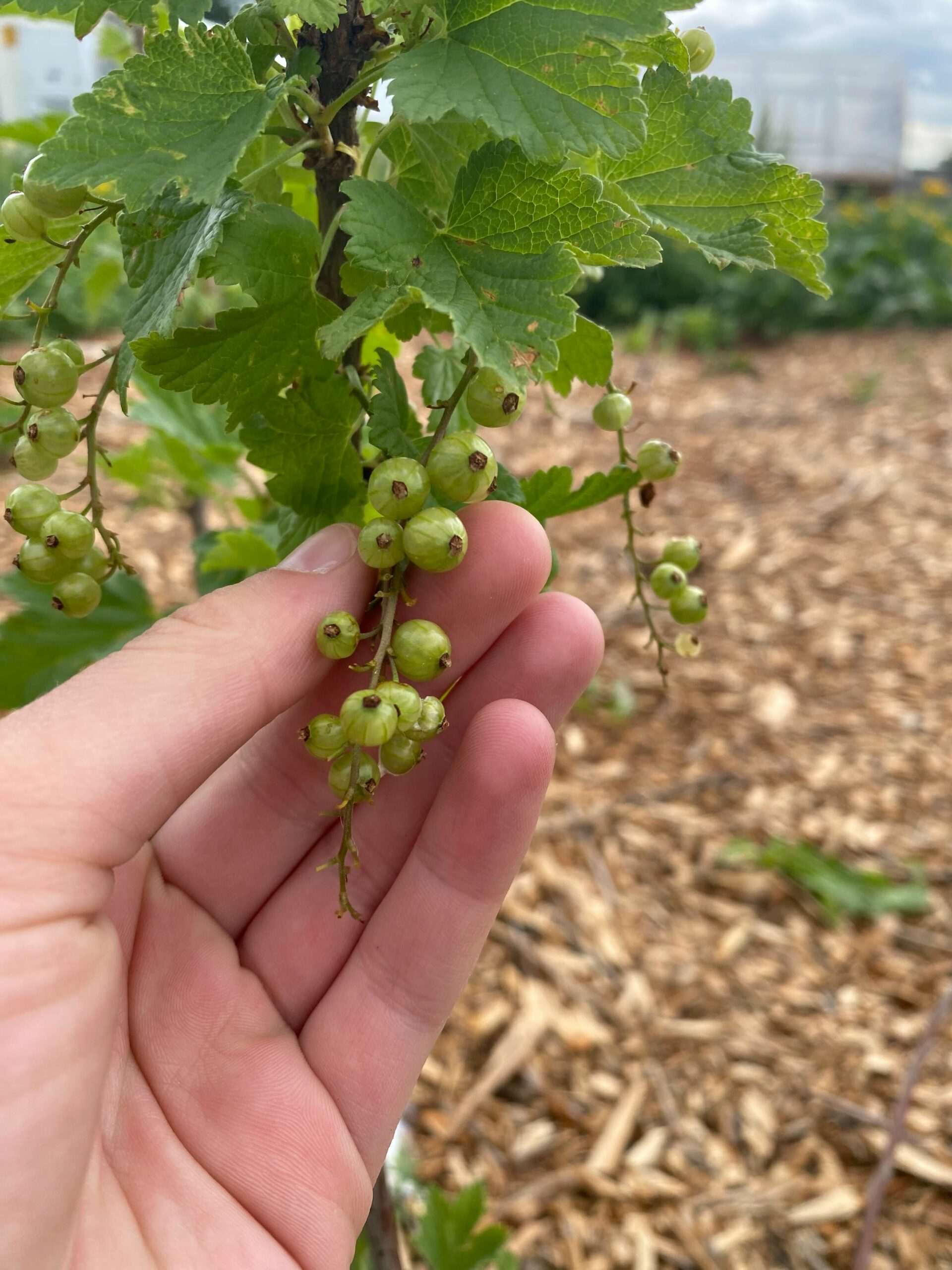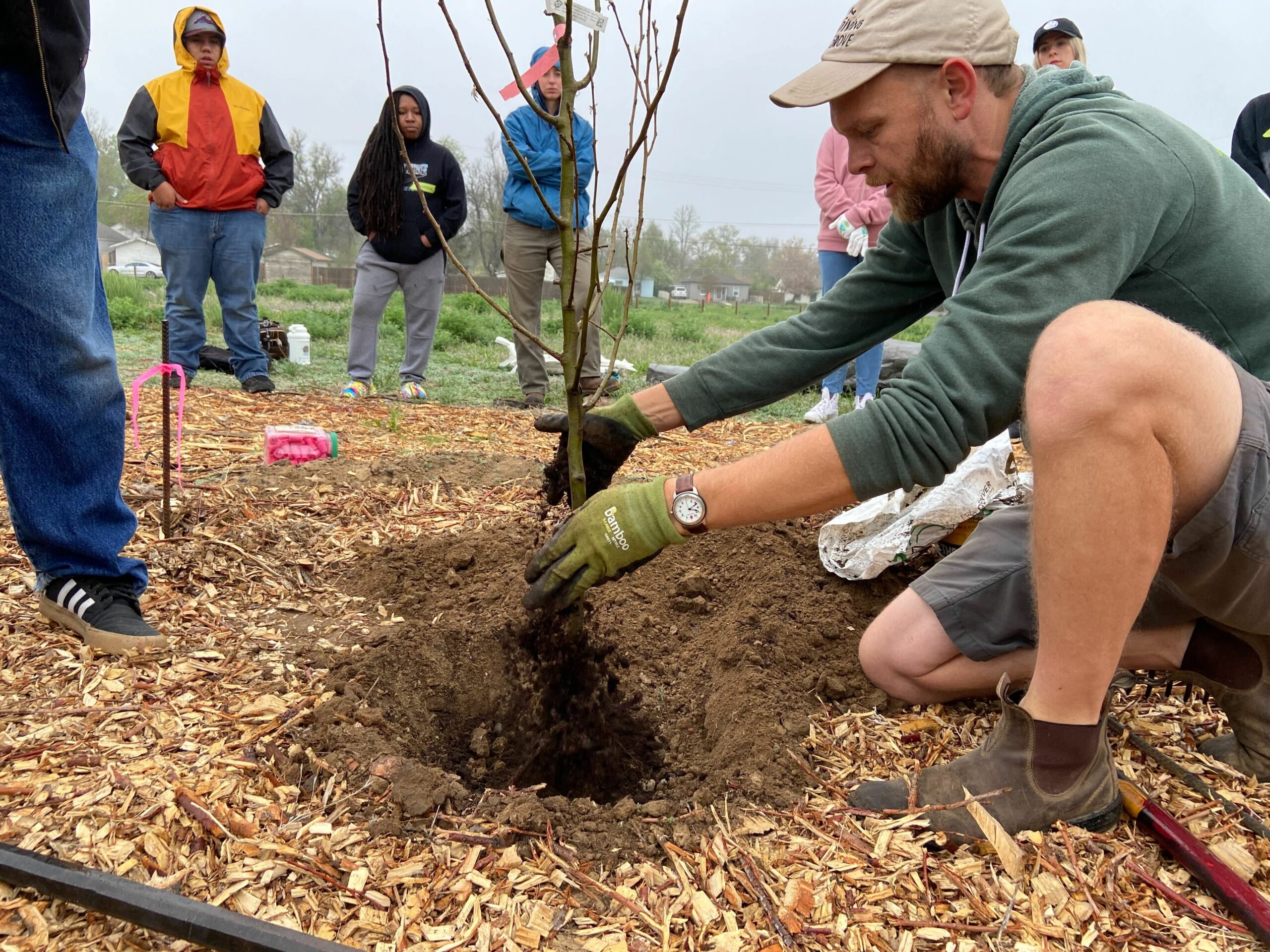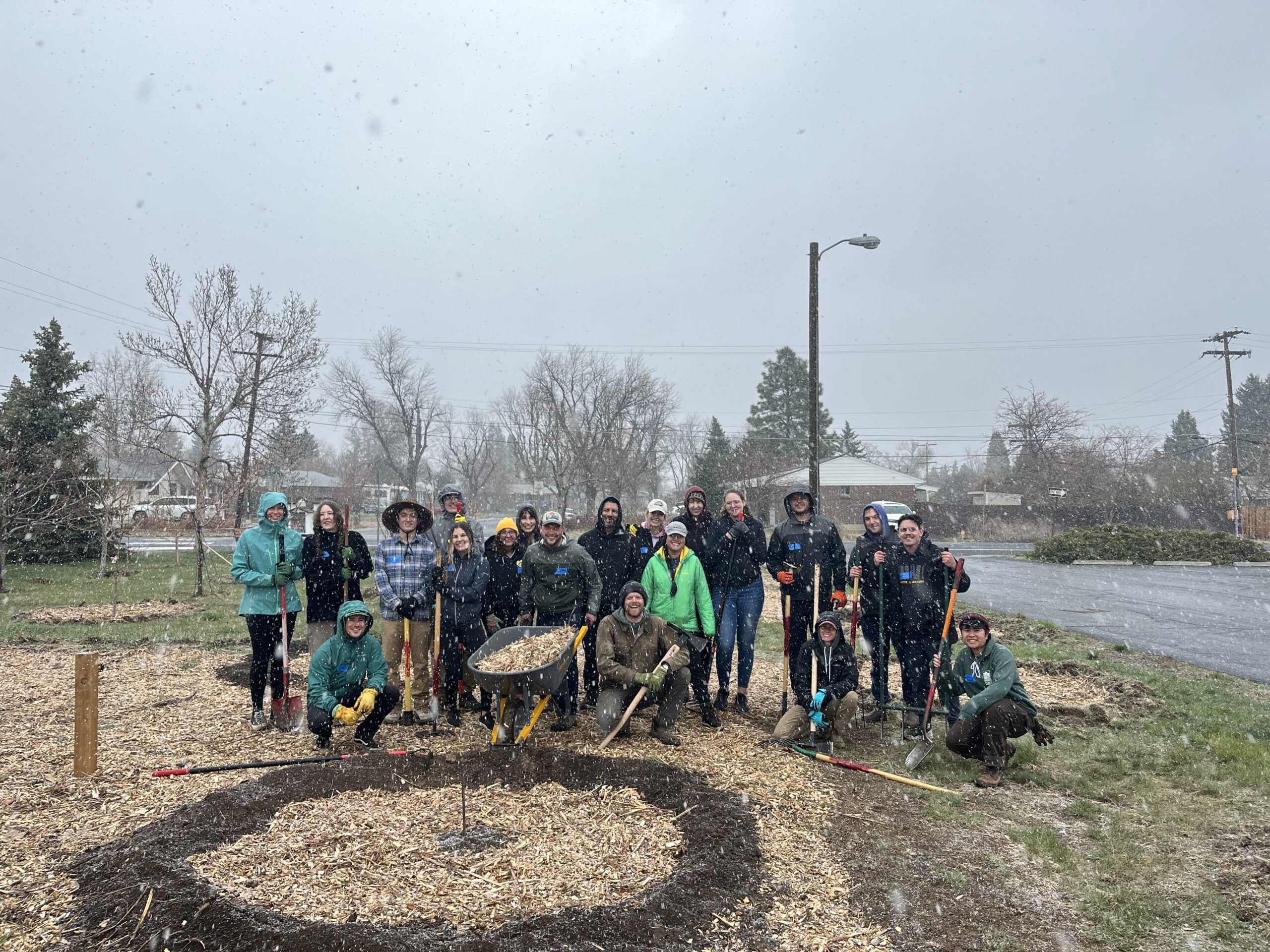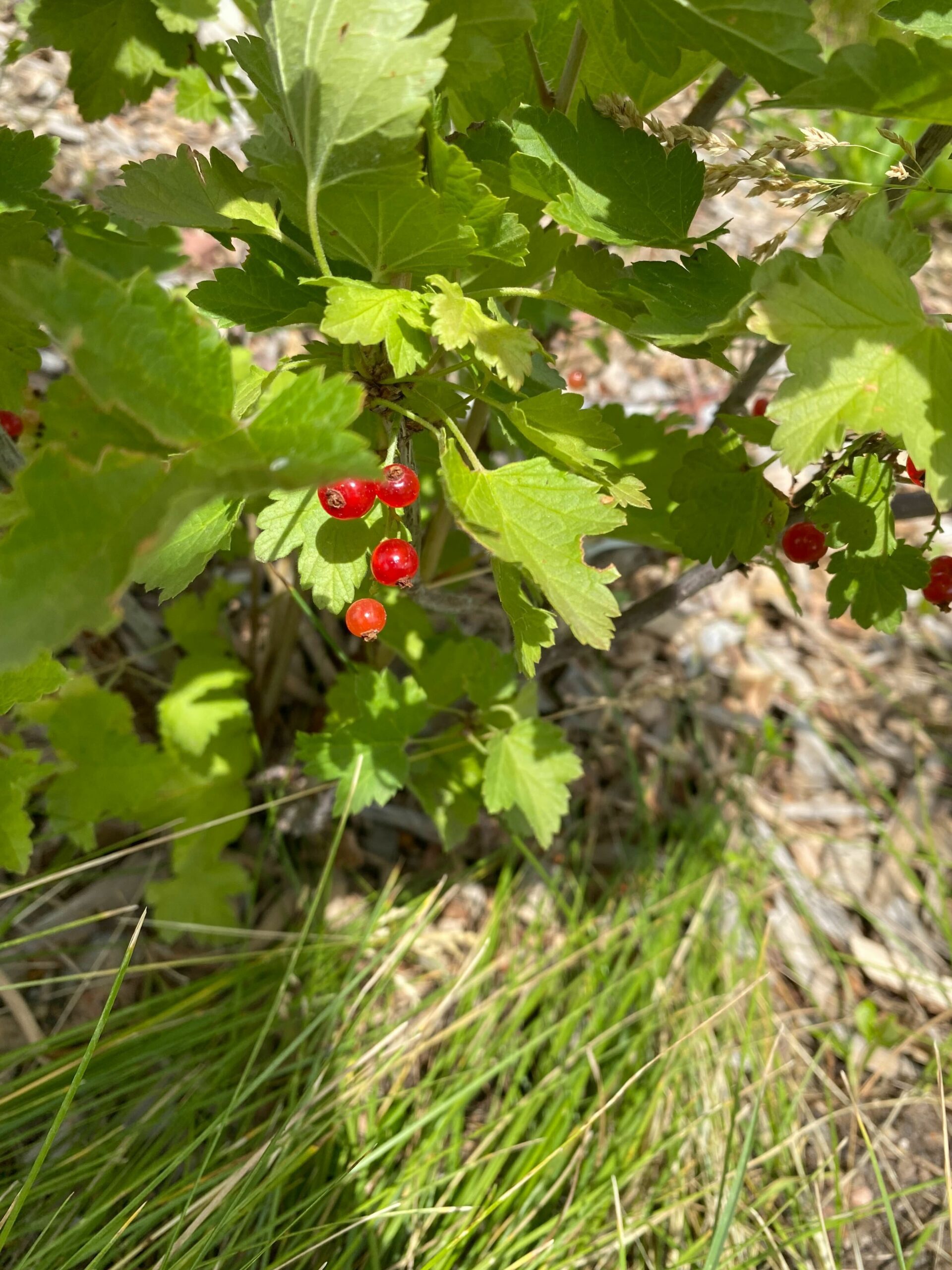Last spring, we launched the Etkin Family Food Forest Initiative with a vision to transform unused, marginal areas into thriving urban forests dripping with fruits, berries, and nuts for all community members.
Trees are an investment in the future, and we knew it would take time for the bare root trees and bushes to grow and become a full-grown food forest, but we’re excited to share that we’re starting to see fruit set on some of our first trees and bushes! This progress is a cause for celebration as we work toward creating a sustainable metro Denver for our children and their children.

Gooseberry bush producing its first crop
In 2022, we planted six sites across the Metro Area, including Nome Park, Barnum Community Orchard, Living Light of Peace Church, Cook Park, Samuels Elementary, and DCIS Fairmont Elementary.
These sites laid the foundation toward our bigger goal to plant 20 food forests in just two years! We’ve kept the momentum going with nine more sites planted this past spring, and we have five more coming this fall.
The Etkin Family Food Forest Initiative aligns with our three impact areas: Climate, People & Food:
- Climate: By planting trees in urban areas, we increase the green canopy, helping to mitigate the heat island effect and combat pollution. Trees also absorb carbon from the atmosphere, contributing to a healthier environment.
- Community: Food forests provide vital green spaces for our community to relax, reflect, and connect with nature. This is especially essential in addressing the loneliness epidemic affecting various populations.
- Food: These food forests increase fresh food production in urban areas, offering a bounty of fruiting trees, bushes, and plants that provide food for the community to enjoy fresh or preserve for colder months.
Colorado Climate and Fruiting Trees
Taking into consideration the extreme Colorado climate, we work with techniques to increase the chances for success and longevity of these Food forests by:
- Planting bare root trees in the spring, which makes them less susceptible to transplant shock and are quicker to take off because they don’t need to transition from the container to the ground.
- Choosing varieties that do well in our climate zone and semi-arid environment
- Prepping the site weeks in advance by turning the soil and amending it with mulch to allow microorganisms to develop a healthy soil web before the roots go in.
- Working with the community to train Tree Keepers who volunteer their time to make sure these food forests thrive.
- Shaping the land into sunken planting basins that harvest rainwater and reduce evaporation.

Creighton Hofeditz, Director of Permaculture & Perennials, showing volunteers how to plant bare root trees

Volunteers supporting a food forest planting day
Community
We have seen tremendous support from community members who want to see this initiative flourish.
We are grateful to the hundreds of volunteers who came out to dig in the soil, shovel compost and mulch, and help plant the nine sites this past spring, as well as the organizations who have adopted specific food forest sites to support the maintenance and other related needs with a three-year commitment.
As we continue to plant food forests we continue searching for volunteer Tree Keepers. The role doesn’t require any previous experience with taking care of trees; we will train volunteers in pruning, pest management, and general tree health.
Fill out this form if you are interested in becoming a Tree Keeper.
Spring 2023 food forests planted:
Tennessee Gateway in partnership with Athmar Park Neighborhood Association, The Urban Farm, Asian Pacific Development Center (APDC), Ute Trail Community Garden, Morey Middle School, Glenbrook Greenhouse (DPS), Doull Elementary, Happiness Gardens in partnership with the City of Wheat Ridge, Parkview United Church Community Garden.



